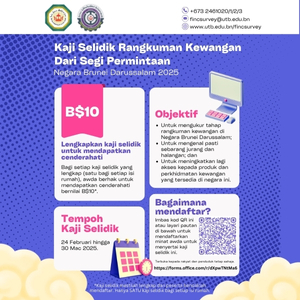ANN/THE JAKARTA POST – Bank Indonesia (BI) made a significant move by raising its benchmark interest rates by 25 basis points (bps) amid global uncertainties, even as the country experienced a consistent decline in inflation throughout the year.
BI Governor Perry Warjiyo clarified the decision, emphasising that the increase in borrowing costs serves as a proactive, future-oriented step aimed at managing long-term inflation and safeguarding the stability of the rupiah exchange rate.
“Global dynamics play out very fast and unpredictably. In last month’s meeting, we conveyed (our observation) based on the newest information back then, but two weeks later, changes took place very rapidly,” said Perry in a press briefing.
Following the central bank’s monthly policy meeting last month, Perry neither announced nor signalled any rate hike for the rest of the year, leading to a market consensus that the BI 7-Day Repo Rate (BI7DDR) would remain at 5.75 per cent this month.
With the 25-bps increase, the benchmark rate is now at six per cent, which Perry admitted was a “hard pill to swallow” but one that was needed to brace for ongoing uncertainty.
Several factors have been troubling investors over the past weeks and months, such as rising prices for oil and gas and numerous food commodities, increasing levels of government and personal debt amid higher funding costs, and the escalation in the Israeli-Hamas conflict.


The latter, many speculate, could lead to a wider conflict that may draw in other countries and constrain oil supply from the region, possibly catapulting prices well beyond USD100 per barrel.
Perry said the higher oil price poses a risk of imported inflation for Indonesia, even though domestic inflation has been relatively low for several months when put in a global context.
Consumer price index (CPI) growth in Indonesia dropped to just 2.28 per cent last month, marking a big step down from 3.27 recorded in the preceding month.
Inflation in the archipelago has been below four per cent since June following a downward trend since February. Hence, BI had, until now, kept its key rate at 5.75 per cent since January despite continued monetary policy tightening elsewhere.
Apart from the risks of imported inflation and geopolitical developments, Perry also said the hike was called for to embrace a hawkish stance taken by central banks in some developed countries. BI sees a 40-per-cent chance that the United States Federal Reserve will raise its Federal Funds Rate (FFR) in December.
The more important matter, according to Perry, is how long it will remain high. The central bank head suggested that rates in developed economies would remain high to help pay off government debt.
Another reason cited for the hike is the global economic slowdown, with 2.9 per cent growth forecast for this year and 2.8 per cent for 2024.
“Therefore, the world needs to rely on domestic demand for economic growth,” said Perry.
The global uncertainties could prompt investors to move funds out of what is considered to be riskier emerging market assets and into the US dollar, piling more pressure on other currencies as a result.
BI noted that capital inflows to Indonesia had begun to subside, hence its measure of diversifying the Indonesian financial market by introducing two new products to make the rupiah more appealing with the end goal of attracting portfolio investment and stabilising the rupiah-dollar exchange rate.
The central bank said the new products, BI Foreign Currency Securities (SVBI) and BI Foreign Currency Sukuk (SUVBI), would be released on November 17.
This follows the release of BI Rupiah Securities (SRBI) in September.
Bank Permata chief economist Josua Pardede wrote in a statement he expected the rupiah to be more stable in the short term because BI’s rates gap to the FFR remained positive, even under the assumption of the Fed increasing its rate by 25 bps in the remainder of the year.
“We still expect that BI will follow suit with a higher-for-longer stance in 2024 and start to cut the rate (only) in the fourth quarter of 2024,” said Josua.
Concurring, Bank Danamon economist Irman Faiz said in a statement released on Thursday that BI’s measures would contribute to a strengthening rupiah.
“From an internal balance standpoint, inflation has persistently slowed down, remaining well below BI’s upper target for this year. Simultaneously, domestic demand indicators continue to display resilience, in line with the robust growth figures observed during the first two quarters,” wrote Irman.
“However, it’s crucial to acknowledge the inherent risks associated with the escalating oil prices against the backdrop of geopolitical tensions,” he added.







